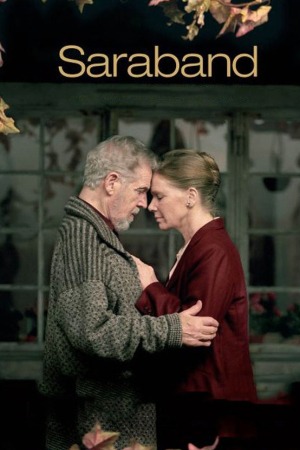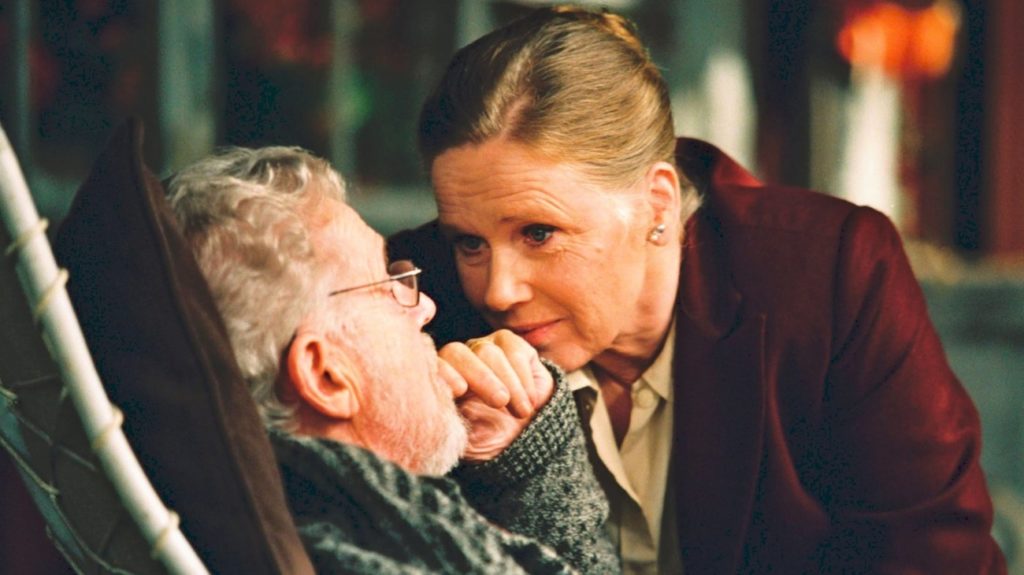
Nominally a sequel to Bergman’s 1973 Scenes from a Marriage, the new film observes the events that occur when Marianne (Liv Ullmann) vists her ex-husband Johan (Erland Josephson), whom she has not seen in 32 years. They have aged much in the time since the earlier film; she is now 63, he 85. Their conversation no longer revolves around sex, infidelity, passion, love; they are reaching the end of their lives, and such concerns are too fleeting for them now. To Johan especially, only death remains, and the film functions in no small part as an old man’s mediation on the meaning – or lack thereof – in the events of his life (in this, I was reminded in no little way of one of Bergman’s first international hits, Wild Strawberries – but now, as he himself has reached the end of his life, these musings are truer, deeper, and infinitely more troubling). Specifically, Johan is confronting the mistakes he made in raising Henrik (Börje Ahlstedt), his son by his first wife, and trying to correct those mistakes by helping Henrik’s daughter Karin (Julia Dufvenius).
The title, Saraband, refers to a type of Baroque dance favored by J.S. Bach, one of which is played a few times in the film by Karin, a cellist. The saraband is an intimate, often erotic dance, and a metaphor delicately played out in the film, which takes place in ten scenes, each scene a dialogue between two of the four characters. These dialogues range from the terse, hateful exchanges between father and son, to the confused, anxious musings of a young girl to an old woman, to the long and well-earned conversations between two old people who may, once upon a time, have loved each other very much. The plot of the film is ultimately less important than these relationships; two people reaching out to each other, and nearly always failing. Most damningly at the end of the film, which recreates the surprisingly optimistic conclusion of Scenes from a Marriage, before reminding us that happy endings and fairy tale reconciliations are ultimately false; for the true end of every story can only, ever, be death.
